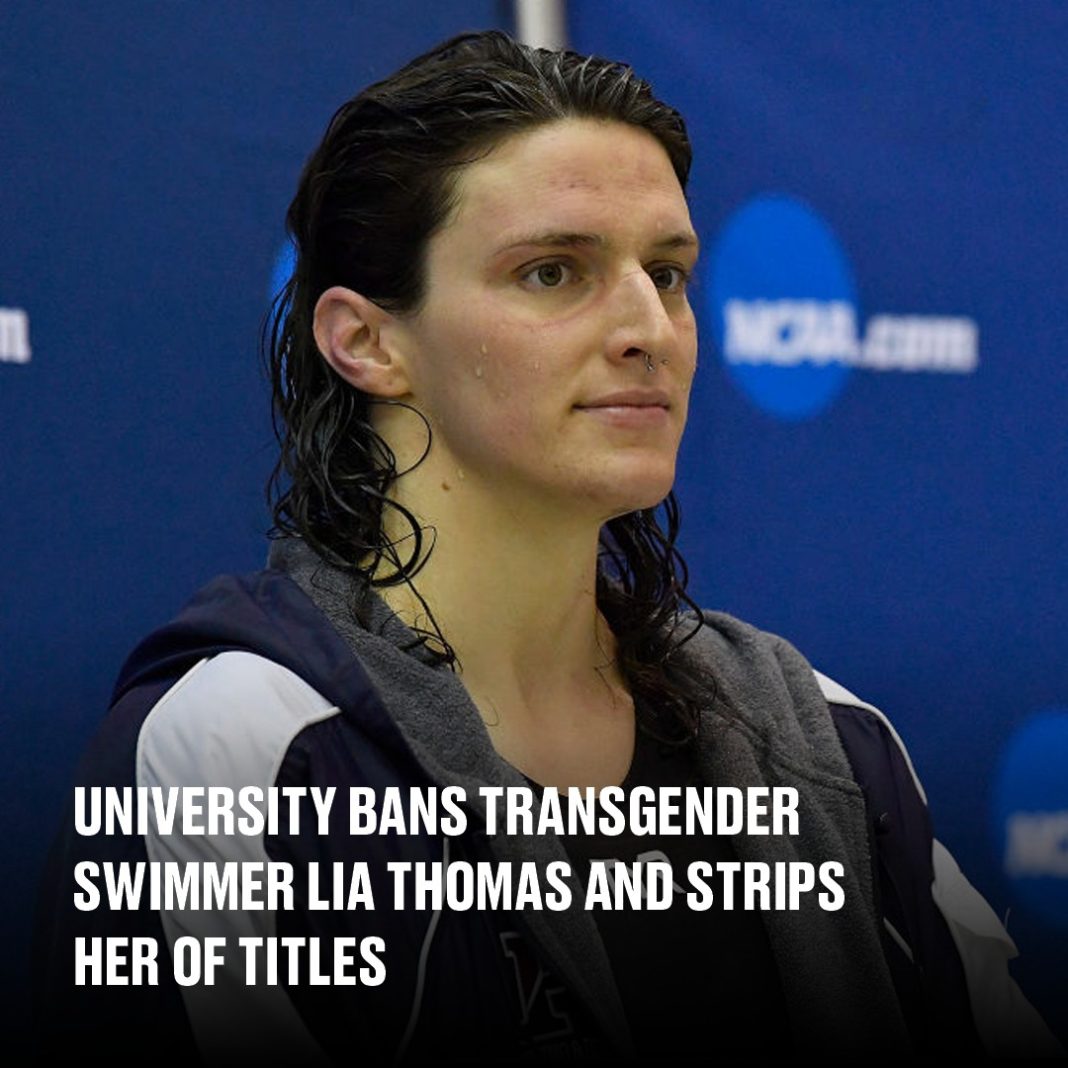A Controversial Shift in Women’s Sports: The Lia Thomas Case
The landscape of collegiate athletics has been rocked by a contentious debate surrounding fairness in women’s sports. At the center of this heated conversation lies Lia Thomas, a transgender swimmer whose remarkable achievements during the 2021-2022 swim season have been met with both admiration and criticism. Recently, the University of Pennsylvania (UPenn) has made a significant decision: they have officially banned Thomas from competing and have stripped her of her records and titles, effectively erasing her presence from the university’s athletic history. This decision is not just an isolated incident; it is part of a larger trend influenced by political figures, notably former President Donald Trump, who have actively sought to restrict transgender athletes’ participation in women’s sports.

The Rise and Fall of Lia Thomas
During her tenure at UPenn, Lia Thomas achieved extraordinary feats, breaking records in the 100, 200, and 500 freestyle events. While many celebrated her accomplishments as a testament to hard work and dedication, others perceived them as unfair advantages due to her transgender status. Critics voiced concerns about the potential impact on cisgender female athletes, arguing that Thomas’s participation created an unlevel playing field. This discourse was amplified by voices from multiple sports, as female athletes from various disciplines began questioning the fairness of allowing transgender women to compete in their categories. The debate quickly escalated, becoming a focal point for discussions about gender identity, equality, and the integrity of women’s sports.

Political Influences: The Trump Administration’s Stance
Donald Trump’s administration has long held a binary view of gender, a position that has significantly shaped policies affecting transgender individuals. From the outset of his presidency, Trump made it clear that his administration would pursue a stringent interpretation of gender identity, which has extended into the realm of athletics. Earlier this year, in response to external pressures, the NCAA revised its policies regarding transgender athletes, stating that only those assigned female at birth would be eligible to compete in women’s sports. This change, designed to address concerns about fairness, has cast a shadow over athletes like Thomas, who faced new restrictions as a result.

University of Pennsylvania’s Controversial Apology
The University of Pennsylvania’s recent apology to female swimmers who lost competitions against Thomas has added another layer to this unfolding saga. University President J. Larry Jameson publicly acknowledged the distress and sense of competitive disadvantage experienced by some athletes, asserting that the university’s policies had previously followed NCAA eligibility requirements. However, this belated recognition of the concerns raised by cisgender female athletes has led to intense debate regarding the university’s responsibility and its role in ensuring fair competition. In a swift response, UPenn updated its athletics website to reflect new winners and removed Thomas’s records, reinforcing the institution’s commitment to aligning with the principles they believe govern fairness in sports.
Implications for Transgender Athletes: A Step Backwards?
The recent NCAA regulation prohibiting transgender women who transitioned after puberty from competing in women’s sports has drawn criticisms from various advocacy groups. Many argue that these policies effectively marginalize transgender athletes, pushing them to the sidelines in a space where they once sought inclusion and acceptance. This exclusion sends a troubling message about the values of acceptance and support for all athletes, regardless of their gender identity. For countless transgender individuals, sports have represented a vital opportunity for self-expression, community, and growth. The current trajectory raises critical questions about the future of transgender participation in athletics and whether it is possible to balance inclusion with a sense of competitive fairness.
A Divided Response: Perspectives on Campus and Beyond
Within the UPenn community, students are polarized in their responses to the situation. Some commend the university for taking a stand on fairness in athletics, believing that the ban on Thomas was necessary to uphold the integrity of women’s sports. Others, however, view this action as a betrayal of inclusivity, arguing that it undermines the university’s commitment to diversity and equity. This division is reflective of a broader national conversation that grapples with the complex interplay between gender identity, equity, and competitive integrity. The case of Lia Thomas has thus evolved into a microcosm of larger societal debates, illustrating the challenges of navigating conflicting values in modern America.
Looking Ahead: What the Future Holds for Women’s Sports
As the fallout from the Lia Thomas case continues to unfold, it is evident that we stand at a critical juncture in the evolving dialogue surrounding gender and athletics. The actions taken by UPenn and the NCAA reflect not only a moment of reckoning for transgender rights in sports but also the broader implications of political influence on athletic policies. Whether seen as a corrective measure or a regression of rights, this case underscores the ongoing struggle to find common ground between inclusion and fairness. As educational institutions and sports organizations formulate their policies in the wake of these events, the pressing question remains: can we create an environment where all athletes are treated equitably without compromising the principles of fair competition?
The evolving landscape requires sustained dialogue, thoughtful consideration, and a renewed commitment to understanding the diverse experiences of all athletes. It is imperative that as a society, we engage in constructive conversations about identity and fairness in sports, recognizing that the decisions made now will reverberate for generations to come. As we navigate this complex terrain, one thing is clear: the conversation around gender identity and athletics is far from over, and its outcomes will shape the future of sports in America.

















